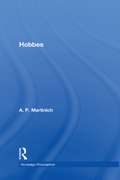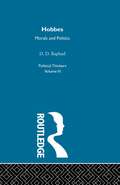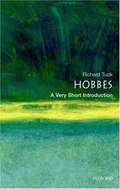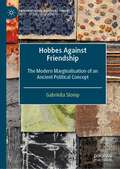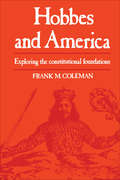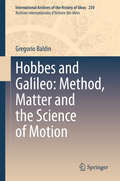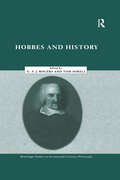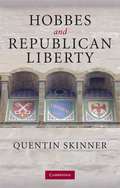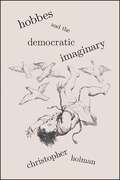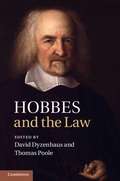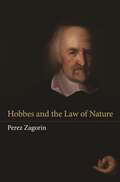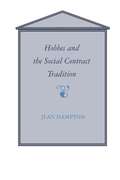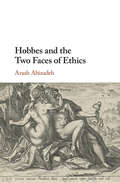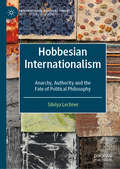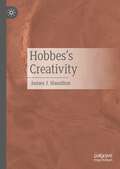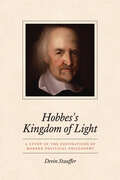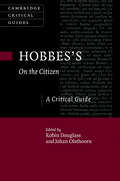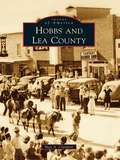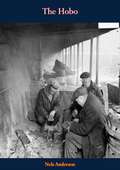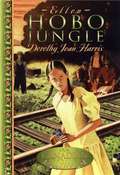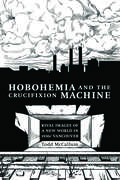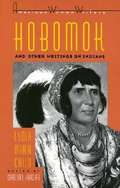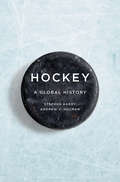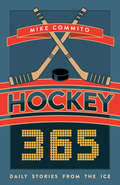- Table View
- List View
Hobbes: A Biography (The Routledge Philosophers)
by A.P. MartinichThomas Hobbes (1588-1679) was the first great English philosopher and one of the most important theorists of human nature and politics in the history of Western thought. This superlative introduction presents Hobbes' main doctrines and arguments, covering all of Hobbes' philosophy. A.P. Martinich begins with a helpful overview of Hobbes' life and work, setting his ideas against the political and scientific background of seventeenth-century England. He then introduces and assesses, in clear chapters, Hobbes' contributions to fundamental areas of philosophy: epistemology and metaphysics, in particular Hobbes' materialism and determinism and his relation to Descartes ethics and political philosophy, concentrating on Hobbes' most famous work, Leviathan, and the theory of the social contract it advances philosophy of science, logic and language, considering Hobbes' theory of nominalism and his writing on rhetoric and the uses of language; religion, examining Hobbes' analyses of revelation, prophets and miracles. The final chapter considers the legacy of Hobbes' thought and his influence on contemporary philosophy.
Hobbes: Morals and Politics (Political Thinkers Ser.)
by D D Raphael D. D. RaphaelFirst published in 1977 this book is both expository and critical and concentres on Hobbes' ethical and political theory, but also considering the effect on these of his metaphysics. Updated, with a new preface especially for this re-issue, which brings together recent scholarship on Hobbes, a particular useful feature of the book is the new, critical bibliography.
Hobbes: A Very Short Introduction
by Richard TuckThomas Hobbes (1588-1679) was the first great English political philosopher, and his book Leviathan was one of the first truly modern works of philosophy. Richard Tuck shows that while Hobbes may indeed have been an atheist, he was far from pessimistic about human nature, nor did he advocate totalitarianism. By locating him against the context of his age, we learn that Hobbes developed a theory of knowledge which rivaled that of Descartes in its importance for the formation of modern philosophy.
Hobbes Against Friendship: The Modern Marginalisation of an Ancient Political Concept (International Political Theory)
by Gabriella SlompThis book explores why and how Thomas Hobbes – the 17th century founder of political science -- contributed to the modern marginalisation of ‘friendship’, a concept that stood in the foreground of ancient moral and political thought and that is currently undergoing a revival. The study shows that Hobbes did not question the occurrence of friendship; rather, he rejected friendship as an explanatory and normative principle of peace and cooperation. Hobbes’s stance was influential because it captured the spirit of modernity- its individualism, nominalism, practical scepticism, and materialism. Hobbes’s legacy has a bearing on contemporary debates about civic, international and global friendship.
Hobbes and America: Exploring the Constitutional Foundations
by Frank ColemanThis path-breaking study seriously shakes the credibility of the prevalent interpretations of American government and politics. It exposes the real American constitutional morality, one embodied in a code adhered to by those in political life.Frank Coleman makes a persuasive case that the real roots of the American political system are in Hobbes, and not, as is usually thought, in Locke. He shows that a Hobbesian interpretation fits the transactional, bargaining, or conflict-management nature of American politics pointed out by all the empirical political scientists, although this viewpoint is incompatible with the leading philosophical interpretations of American constitutionalism.In so far as the American system and its rationale are Hobbesian, they are thereby incapable of resolving social conflicts and of pursuing any common good. The leading theories, particularly the reformist theories, are unable to absorb the teachings of empirical political science – and to such an extent that one can speak of a pattern of political schizophrenia prevailing in the political science profession.Coleman is no naive iconoclast: he has a thorough grasp and appreciation of the traditions of political theory from Aristotle to Oakeshott: he dissects his material meticulously, with coherence and integrity. His synthesis of empirical and philosophical studies of political life sharpens our perceptions and forces a re-evaluation of certain ideas and well-entrenched notions. Hobbes and America has serious implications for understanding both American politics and, more generally, western political experience and thought.
Hobbes and Galileo: Method, Matter and the Science of Motion (International Archives of the History of Ideas Archives internationales d'histoire des idées #230)
by Gregorio BaldinThis book, translated from Italian, discusses the influence of Galileo on Hobbes’ natural philosophy. In his De motu, loco et tempore or Anti-White (~ 1643), Thomas Hobbes describes Galileo as “the greatest philosopher of all times”, and in De Corpore (1655), the Italian scientist is presented as the one who “opened the door of all physics, that is, the nature of motion.” The book gives a detailed analysis of Galileo’s legacy in Hobbes’s philosophy, exploring four main issues: a comparison between Hobbes’ and Mersenne’s natural philosophies, the Galilean Principles of Hobbes’ philosophical system, a comparison between Galileo’s momentum and Hobbes’s conatus , and Hobbes’ and Galileo’s theories of matter. The book also analyses the role played by Marin Mersenne, in spreading Galileo’s ideas in France, and as a discussant of Hobbes. It highlights the many aspects of Hobbes’ relationship with Galileo: the methodological and epistemological elements, but also the conceptual and the lexical analogies in the field of physics, to arrive, finally, at a close comparison on the subject of the matter. From this analysis emerges a shared mechanical conception of the universe open and infinite, that replaces the Aristotelian cosmos, and which is populated by two elements only: matter and motion.
Hobbes and History (Routledge Studies in Seventeenth-Century Philosophy)
by Tom Sorell G. A. J. RogersMuch of Thomas Hobbes's work can be read as historical commentary, taking up questions in the philosophy of history and the rhetorical possibilities of written history. This collection of scholarly essays explores the relation of Hobbes's work to history as a branch of learning.
Hobbes and Republican Liberty
by Quentin SkinnerQuentin Skinner is one of the foremost historians in the world, and in Hobbes and Republican Liberty he offers a dazzling comparison of two rival theories about the nature of human liberty. The first originated in classical antiquity, and lay at the heart of the Roman republican tradition of public life. Thomas Hobbes was the most formidable enemy of this pattern of thought, and his successive attempts to discredit it constitute a truly epochal moment in the history of Anglophone political thought. Hobbes and Republican Liberty develops several of the themes announced by Quentin Skinner in his celebrated inaugural lecture on Liberty before Liberalism of 1997. Cogent, engaged, accessible, and indeed exhilarating, this new book will appeal to readers of history, politics, and philosophy at all levels from upper-undergraduate upwards, and provides an excellent introduction to the work of one of the most celebrated thinkers of our time.
Hobbes and the Artifice of Eternity
by Christopher Scott McclureThomas Hobbes argues that the fear of violent death is the most reliable passion on which to found political society. His role in shaping the contemporary view of religion and honor in the West is pivotal, yet his ideas are famously riddled with contradictions. In this breakthrough study, McClure finds evidence that Hobbes' apparent inconsistencies are intentional, part of a sophisticated rhetorical strategy meant to make man more afraid of death than he naturally is. Hobbes subtly undermined two of the most powerful manifestations of man's desire for immortality: the religious belief in an afterlife and the secular desire for eternal fame through honor. McClure argues that Hobbes purposefully stirred up controversy, provoking his adversaries into attacking him and unwittingly spreading his message. This study will appeal to scholars of Hobbes, political theorists, historians of early modern political thought and anyone interested in the genesis of modern Western attitudes toward mortality.
Hobbes and the Democratic Imaginary: Hobbes And The Democratic Imaginary
by Christopher HolmanAt a time when nearly all political actors and observers—despite the nature of their normative commitments—morally appeal to the language of democracy, the particular signification of the term has become obscured. Hobbes and the Democratic Imaginary argues that critical engagement with various elements of the work of Hobbes, a notorious critic of democracy, can deepen our understanding of the problems, stakes, and ethics of democratic life. Firstly, Hobbes's descriptive anatomy of democratic sovereignty reveals what is essential to the institution of this form of government, in the face of the conceptual confusion that characterizes the contemporary deployment of democratic terminology. Secondly, Hobbes's critique of the mechanics of democracy points toward certain fundamental political risks that are internal to its mode of operation. And thirdly, contrary to Hobbes's own intentions, Christopher Holman shows how the selective redeployment of certain Hobbesian categories could help construct a normative ground in which democracy is the ethical choice in relation to other sovereign forms.
Hobbes and the Law
by Thomas Poole David DyzenhausHobbes's political thought provokes a perennial fascination. It has become particularly prominent in recent years, with the surge of scholarly interest evidenced by a number of monographs in political theory and philosophy. At the same time, there has been a turn in legal scholarship towards political theory in a way that engages recognisably Hobbesian themes, for example the relationship between security and liberty. However, there is surprisingly little engagement with Hobbes's views on legal theory in general and on certain legal topics, despite the fact that Hobbes devoted whole works to legal inquiry and gave law a prominent role in his works focused on politics. This volume seeks to remedy this gap by providing the first collection of specially commissioned essays devoted to Hobbes and the law.
Hobbes and the Law of Nature
by Perez ZagorinThis is the first major work in English to explore at length the meaning, context, aims, and vital importance of Thomas Hobbes's concepts of the law of nature and the right of nature. Hobbes remains one of the most challenging and controversial of early modern philosophers, and debates persist about the interpretation of many of his ideas, particularly his views about natural law and natural right. In this book, Perez Zagorin argues that these two concepts are the twin foundations of the entire structure of Hobbes's moral and political thought. Zagorin clears up numerous misconceptions about Hobbes and his relation to earlier natural law thinkers, in particular Hugo Grotius, and he reasserts the often overlooked role of the Hobbesian law of nature as a moral standard from which even sovereign power is not immune. Because Hobbes is commonly thought to be primarily a theorist of sovereignty, political absolutism, and unitary state power, the significance of his moral philosophy is often underestimated and widely assumed to depend entirely on individual self-interest. Zagorin reveals Hobbes's originality as a moral philosopher and his importance as a thinker who subverted and transformed the idea of natural law. Hobbes and the Law of Nature is a major contribution to our understanding of Hobbes's moral, legal, and political philosophy, and a book rich in interpretive and critical insights into Hobbes's writing and thought.
Hobbes and the Social Contract Tradition
by Jean HamptonThis major study of Hobbes' political philosophy draws on recent developments in game and decision theory to explore whether the thrust of the argument in Leviathan, that it is in the interests of the people to create a ruler with absolute power, can be shown to be cogent. Professor Hampton has written a book of vital importance to political philosophers, political and social scientists, and intellectual historians.
Hobbes and the Two Faces of Ethics
by Arash AbizadehReading Hobbes in light of both the history of ethics and the conceptual apparatus developed in recent work on normativity, this book challenges received interpretations of Hobbes and his historical significance. Arash Abizadeh uncovers the fundamental distinction underwriting Hobbes's ethics: between prudential reasons of the good, articulated via natural laws prescribing the means of self-preservation, and reasons of the right or justice, comprising contractual obligations for which we are accountable to others. He shows how Hobbes's distinction marks a watershed in the transition from the ancient Greek to the modern conception of ethics, and demonstrates the relevance of Hobbes's thought to current debates about normativity, reasons, and responsibility. His book will interest Hobbes scholars, historians of ethics, moral philosophers, and political theorists.
Hobbesian Internationalism: Anarchy, Authority and the Fate of Political Philosophy (International Political Theory)
by Silviya LechnerThis book sets out to re-examine the foundations of Thomas Hobbes’s political philosophy, and to develop a Hobbesian normative theory of international relations. Its central thesis is that two concepts – anarchy and authority – constitute the core of Hobbes's political philosophy whose aim is to justify the state. The Hobbesian state is a type of authority (juridical, public, coercive, and supreme) which emerges under conditions of anarchy ('state of nature'). A state-of-nature argument makes a difference because it justifies authority without appeal to moral obligation. The book shows that the closest analogue of a Hobbesian authority in international relations is Kant's confederation of free states, where states enjoy 'anarchical' (equal) freedom. At present, this crucial form of freedom is being threatened by economic processes of globalisation, and by the resurgence of private authority across state borders.
Hobbes's Creativity
by James J. HamiltonThis book approaches Hobbes's philosophy from a completely new perspective: his creativity. Creativity is the production of something which experts consider to be original, valuable and of high quality. James Hamilton explores Hobbes's creativity by focusing on his development, personality, and motivation in the context of his culture and environment, and on the ways in which he thought creatively, as inferred from his writings. Identification of the ideas which Hobbes drew upon is an important part of the study for two reasons. First, they are necessary to determine which of Hobbes's ideas and theories are original and which are not. Second, analysis of his creativity requires an understanding of the ideas from which he drew. Hamilton concludes that Hobbes became a great philosopher because of his creative virtuosity.
Hobbes's Kingdom of Light: A Study of the Foundations of Modern Political Philosophy
by Devin StaufferWas Hobbes the first great architect of modern political philosophy? Highly critical of the classical tradition in philosophy, particularly Aristotle, Hobbes thought that he had established a new science of morality and politics. Devin Stauffer here delves into Hobbes’s critique of the classical tradition, making this oft-neglected aspect of the philosopher’s thought the basis of a new, comprehensive interpretation of his political philosophy. In Hobbes’s Kingdom of Light, Stauffer argues that Hobbes was engaged in a struggle on multiple fronts against forces, both philosophic and religious, that he thought had long distorted philosophy and destroyed the prospects of a lasting peace in politics. By exploring the twists and turns of Hobbes’s arguments, not only in his famous Leviathan but throughout his corpus, Stauffer uncovers the details of Hobbes’s critique of an older outlook, rooted in classical philosophy and Christian theology, and reveals the complexity of Hobbes’s war against the “Kingdom of Darkness.” He also describes the key features of the new outlook—the “Kingdom of Light”—that Hobbes sought to put in its place. Hobbes’s venture helped to prepare the way for the later emergence of modern liberalism and modern secularism. Hobbes’s Kingdom of Light is a wide-ranging and ambitious exploration of Hobbes’s thought.
Hobbes's On the Citizen: A Critical Guide (Cambridge Critical Guides)
by Robin Douglass Johan OlsthoornThis is the first book-length study in English of Thomas Hobbes's On the Citizen. It aims to show that On the Citizen is a valuable and distinctive philosophical work in its own right, and not merely a stepping-stone toward the more famous Leviathan. The volume comprises twelve original essays, written by leading Hobbes scholars, which explore the most important themes of the text: Hobbes's accounts of human nature, moral motivation, and political obligation; his theories of property, sovereignty, and the state; and, finally, his ideas on the relation between secular and ecclesiastical authority, and the politics behind his religious ideas. Taken together, the essays bring to light many distinctive aspects of Hobbes's thought that are often concealed by the prevailing focus on Leviathan, making for a richer and more nuanced picture of his moral, legal, and political philosophy.
Hobbs and Lea County (Images of America)
by Max A. ClampittWhen Lea County was created in 1917 from Eddy and Chaves Counties in the far southeastern corner of New Mexico, it was virtually a blank canvas for new settlers, with few roads, towns, or amenities. At that time, the area was little more than vast pasture lands for cattle, though a handful of hardy folk had already established homesteads in the region. But on June 13, 1928, that all changed when oil was discovered, and almost overnight, an influx of new settlers arrived, and development began in earnest. Oil wells were drilled on ranchers' property, and saloons, stores, and hotels sprang up, especially in the city of Hobbs. The oil boom drove the early economy of Hobbs and Lea County and of southeastern New Mexico, but through boom and bust, the community has endured, and today more than 50,000 residents call it home.
The Hobo: The Sociology of the Homeless Man (The Heritage of Sociology Ser.)
by Nels Anderson"This is an account, written with insight and sympathy, of the life of the hobo, life in "Hobohemia," a frontier that was already beginning to vanish when this study originally appeared in 1923. The author, drawing from his own experiences as a hobo, pictures life in the 'main stem' of Halsted and State Streets in Chicago. Here are the customs and class distinctions, language, songs, moral and intellectual life of this body of men who, for widely varying reasons, chose the migratory life. A new introduction by the author places the hobo in historical perspective and explains his disappearance from the American scene"-Print ed.
Hobo Jungle: Ellen (Our Candian Girl)
by Dorothy Joan HarrisDuring the Depression in 1939, ten-year-old Ellen misses her life before her father lost his job and her family had to move in with her grandfather in Vancouver.
Hobohemia and the Crucifixion Machine: Rival Images of a New World in 1930s Vancouver
by Todd MccallumIn the early years of the Great Depression, thousands of unemployed homeless transients settled into Vancouver’s “hobo jungle.” The jungle operated as a distinct community, in which goods were exchanged and shared directly, without benefit of currency. The organization of life was immediate and consensual, conducted in the absence of capital accumulation. But as the transients moved from the jungles to the city, they made innumerable demands on Vancouver’s Relief Department, consuming financial resources at a rate that threatened the city with bankruptcy. In response, the municipality instituted a card-control system—no longer offering relief recipients currency to do with as they chose. It also implemented new investigative and assessment procedures, including office spies, to weed out organizational inefficiencies. McCallum argues that, threatened by this “ungovernable society,” Vancouver’s Relief Department employed Fordist management methods that ultimately stripped the transients of their individuality. Vancouver’s municipal government entered into contractual relationships with dozens of private businesses, tendering bids for meals in much the same fashion as for printing jobs and construction projects. As a result, entrepreneurs clamoured to get their share of the state spending. With the emergence of work relief camps, the provincial government harnessed the only currency that homeless men possessed: their muscle. This new form of unfree labour aided the province in developing its tourist driven “image” economy, as well as facilitating the transportation of natural resources and manufactured goods. It also led eventually to the most significant protest movement of 1930s’ Canada, the On-to-Ottawa Trek. Hobohemia and the Crucifixion Machine explores the connections between the history of transiency and that of Fordism, offering a new interpretation of the economic and political crises that wracked Canada in the early years of the Great Depression.
HOBOMOK and Other Writings on Indians
by Lydia Maria Child Carolyn L. KarcherThis is the provocative story of an upper-class white woman who marries an Indian chief, has a child, then leaves him--with the child--for another man and also includes three new stories--"The Church in the Wilderness," "Willie Wharton," and "The Indians"--as well as explanatory notes and an updated bibliography.
Hockey: A Global History (Sport and Society #125)
by Stephen Hardy Andrew C. HolmanLong considered Canadian, ice hockey is in truth a worldwide phenomenon--and has been for centuries. In Hockey: A Global History, Stephen Hardy and Andrew C. Holman draw on twenty-five years of research to present THE monumental end-to-end history of the sport. Here is the story of on-ice stars and organizational visionaries, venues and classic games, the evolution of rules and advances in equipment, and the ascendance of corporations and instances of bureaucratic chicanery. Hardy and Holman chart modern hockey's "birthing" in Montreal and follow its migration from Canada south to the United States and east to Europe. The story then shifts from the sport's emergence as a nationalist battlefront to the movement of talent across international borders to the game of today, where men and women at all levels of play lace 'em up on the shinny ponds of Saskatchewan, the wide ice of the Olympics, and across the breadth of Asia. Sweeping in scope and vivid with detail, Hockey: A Global History is the saga of how the coolest game changed the world--and vice versa.
Hockey 365: Daily Stories from the Ice
by Mike CommitoA hockey history moment for every day of the year! A few seconds can make a game, even a season, and behind each play is a piece of history. Mike Commito marks every day of the year with a great moment in hockey and shows how today's game is part of an ongoing story that dates back to its origins on frozen ponds. From the National hockey League’s first games in 1917 to Auston Matthews's electrifying four-goal debut for the Maple Leafs in 2016, Hockey 365 has something for everyone and is sure to give you a better appreciation for the sport we all love.
